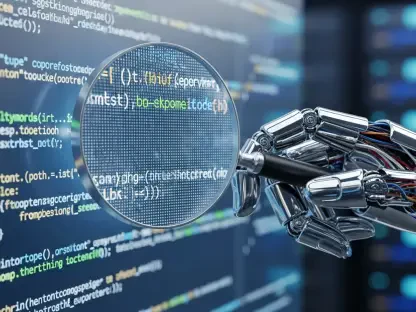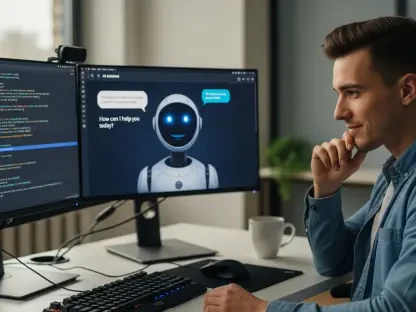Artificial Intelligence (AI) is increasingly integral in the development process, with a growing reliance on AI coding assistants to accelerate productivity and efficiency. These tools, such as GitHub Copilot, Amazon CodeWhisperer, and Hostinger’s Horizons, offer developers the ability to generate code swiftly, suggest refinements, and even complete functions automatically. Nonetheless, AI-driven coding is not without its challenges. Even as AI capabilities advance, concerns over potential errors and inaccuracies in the generated code persist. These challenges underscore the importance of human oversight in ensuring the reliability and accuracy of AI-produced code. While it may seem plausible to expect AI code to be error-free, given the rapid evolution of these tools, the reality is that errors are an inherent part of coding, whether generated by humans or AI.
Unraveling the Roots of AI Code Errors
The foundation of AI coding assistants rests on sophisticated large language models (LLMs) that have been trained on vast repositories of code. These models attempt to predict subsequent code segments based on recognized patterns and contexts. However, the principal issue these tools face is that they lack a genuine understanding of the code’s logic and functionality. Their predictions often resemble educated guesses, leading to issues such as incorrect syntax, misplaced code blocks, or non-functional libraries. Furthermore, certain errors arise from AI’s limited ability to grasp the broader context of projects, sometimes resulting in inaccurate or missing code elements. Recent analyses suggest that various AI models encounter similar errors even when executing identical tasks, indicating that these problems are not isolated incidents but rather systemic challenges ingrained in AI’s operational logic.
Improvements in AI coding accuracy are ongoing, with contemporary models demonstrating significantly enhanced capabilities. For example, recent iterations of models like GPT-4 have achieved approximately 85.7% correctness on initial code attempts. Despite these improvements, the quest for perfection in AI coding continues, as models are not yet infallible. Moreover, developers and researchers are continuously working to refine these tools by integrating more secure, accurate code training, implementing automated testing during code synthesis, and developing intelligent filters to screen for potential issues. While these proactive steps represent promising progress, the journey toward a completely error-free AI coding era remains a work in progress.
Strategies for Managing AI Code Errors
Though AI-generated code has limitations, developers can mitigate potential errors through strategic approaches and practical measures. One fundamental practice is for developers to stay actively engaged with AI coding tools, treating them as collaborative aids rather than standalone solutions. When faced with errors, interactive problem-solving approaches can be beneficial. For instance, developers can prompt AI tools to rectify errors by providing more detailed and specific instructions or guiding the AI with constraints and examples to produce refined outputs. Moreover, regular testing and iteration of code can proactively detect and address bugs or logic issues before integration into production environments.
Should errors persist, developers can leverage the AI’s ability to explain or simplify problem areas, potentially uncovering new insights into error resolution. In cases where automatic fixes are unavailable, a manual review of AI-generated code becomes imperative, particularly concerning code that handles sensitive data, vital logic operations, or security-related functions. This scrutiny ensures the integrity and security of the final code, highlighting the indispensable role of human expertise and vigilance in a collaborative AI-coding ecosystem.
Navigating the Future of AI-Enhanced Coding
AI coding assistants are built on complex large language models (LLMs) that have been extensively trained on immense volumes of code. These models aim to predict forthcoming code segments by identifying patterns and contexts. However, a major limitation is their lack of true comprehension regarding the logic and functionality of the code. Consequently, predictions often appear as educated guesses, leading to mistakes, such as incorrect syntax, improper code blocks, or non-functional libraries. Additionally, errors can stem from an AI’s inability to fully understand the broader contexts of projects, sometimes causing inaccurate or omitted code components. Analyses have shown that different AI models encounter similar errors with identical tasks, suggesting these issues are systemic in AI’s operational framework.
Recent improvements in AI coding accuracy are noteworthy, with models like GPT-4 showing around 85.7% correctness on initial attempts. While advancements are evident, perfection remains elusive. Experts persist in enhancing tools with better training and intelligent filters, yet error-free AI coding is still a work in progress.









